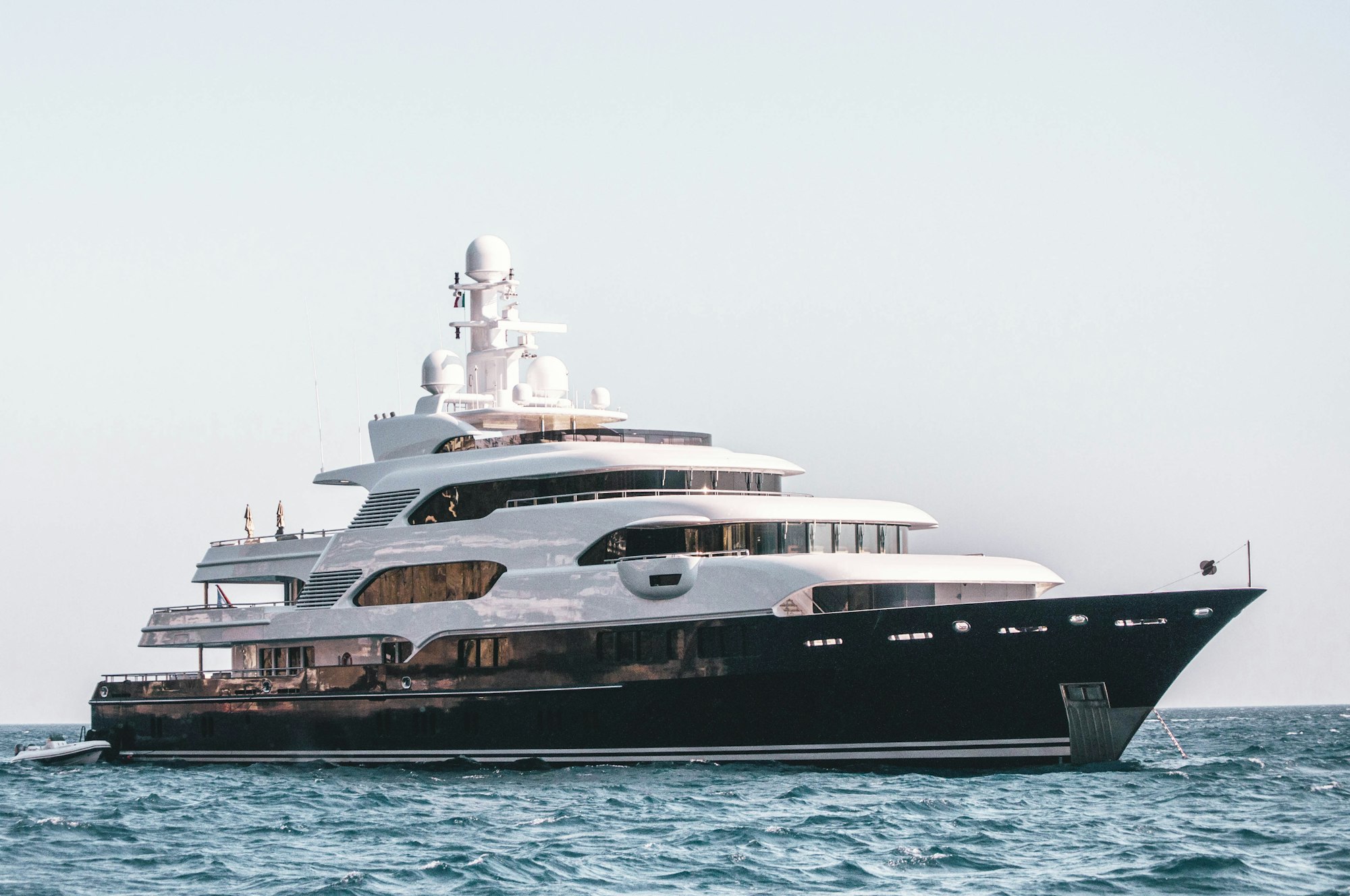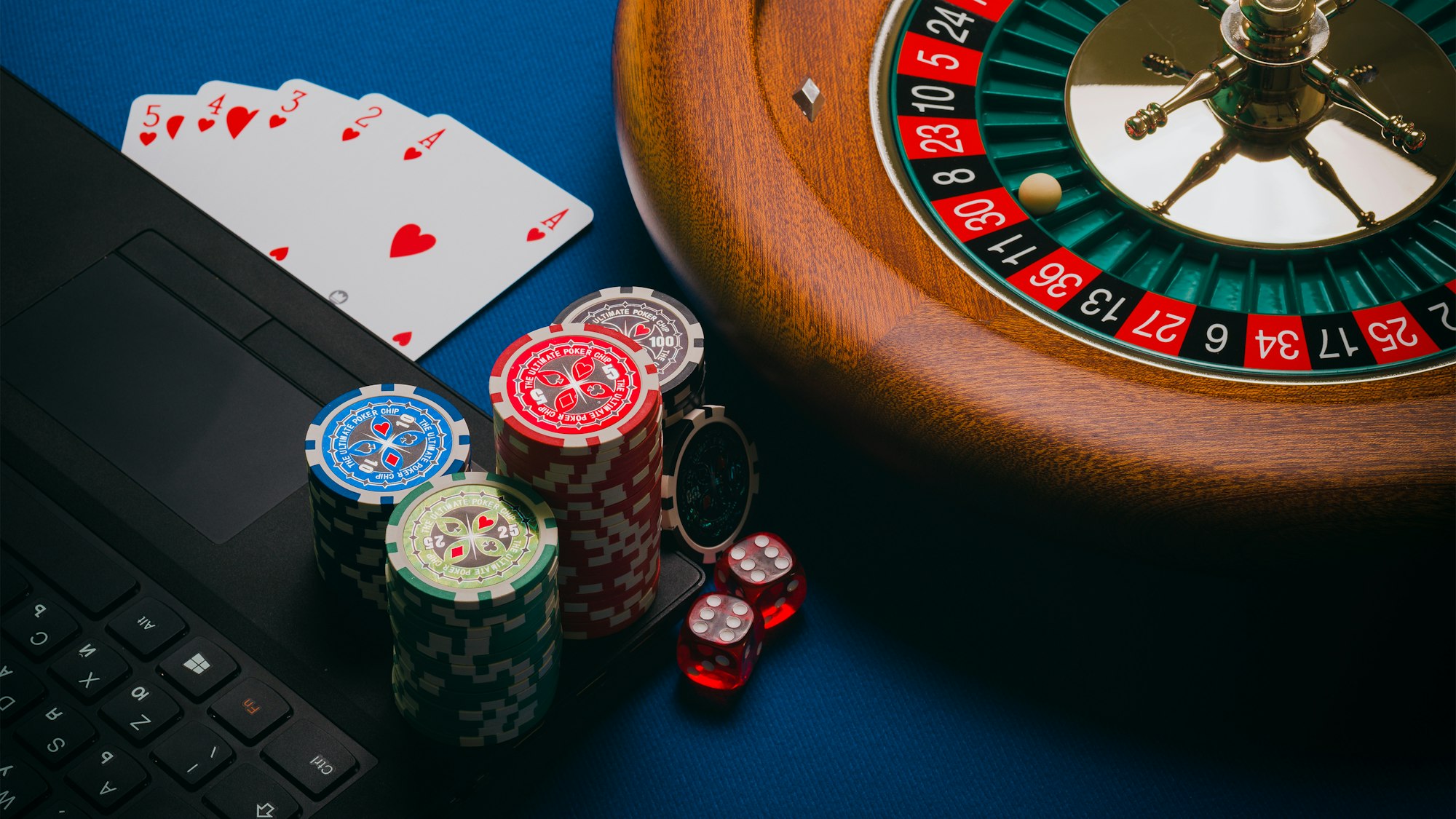The Yachts Or Poverty Mindset
Would you rather be rich or poor? If given the choice, most people would choose to be rich instead of poor. The yachts or poverty mindset is when a person accepts one of two outcomes; to be rich, or to be poor.

Disclaimer: financial information is not financial advice. This post is for informational purposes only.
Would you rather be rich or poor?
If given the choice, most people would choose to be rich instead of poor.
I have been a rich man and I have been a poor man. And I choose rich every f**king time. – Jordan Belfort, The Wolf Of Wall Street (2013)
Popular media, social media, famous people, etc., project an image of glamourous success. An image of success that implies, "if you're not rich like me, you're poor!"
It is that projection that has conditioned people to desire, and want, instant success, instant wealth and riches, instant fame, and so on.
The desire to achieve great wealth, as quickly as possible, and with minimal effort, has led to a sort of cultural phenomenon known as the yachts or poverty mindset.
What is The Yachts Or Poverty Mindset?
The yachts or poverty mindset is when a person accepts one of two outcomes:
- To be rich; or
- To be poor
A person with that mindset desires and tries to become rich, usually through high risk and high reward options trading, even if it means losing their entire investment and thus becoming "poor."
This mindset exists because moderate success, or being average, is not cheered for or celebrated. It's the championship team, the winners, that get the spotlight, the big parade; if you're not literally the best, the richest, etc., then nothing else matters – according to those with the yachts or poverty mindset.
That's the mindset. It is a get rich or die trying mindset.
The Forgotten Class
Of course, there is a third outcome, which most people fall into, and is the average, in the middle of rich and poor. This middle, average outcome, is the forgotten middle class.
So, would you rather be rich, average, or poor? The yachts or poverty person believes that being average is no different than being poor, relative to being rich.
The problem with that type of thinking is that not everyone can be rich. If everyone is rich, then no one is rich. Because it's about relativity.
We only say someone is rich because they have more money than the average person, but if everyone has the same amount of money, then no one is "rich."
Take for example, Zimbabwe where 550 million dollars, of their currency, was once the price for a loaf of bread, and teacher salaries were in the trillions of dollars per month.
By comparison, if every American were a multimillionaire, nobody would be "rich enough" to afford exotic luxury vehicles or yachts.
Simply put, not everyone can become rich. And not every trader can either.
Ironically, then, the typical yachts or poverty trader is making the rich richer, and themselves poorer, relatively speaking.
But Who Was Dunning-Kruger?
The allure to trading is that anyone is able to do it, and it seems so easy to get rich quick. Trading appears to be as easy as the click of a mouse and push of a button!
Nobody without experience in an athletic sport would think they could compete at a professional level from the start as a newbie.
Another way to put it is, not everyone is able to become a pro athlete, and not everyone is able to become a pro trader that makes a lot of money, consistently.
So why then do yachts or poverty traders think they can compete and make consistent money overnight? It's the Dunning-Kruger effect and the illusion that trading and printing money out of the stock market is easy.
A trader with that mindset is not trading, but in reality, is gambling.
Gambler's Paradise

The low cost of entry to trading stocks and options has created a sort of gambler's paradise, where many newbie traders risk their money to try and hit homeruns.
The yachts or poverty mindset, or mentality, is useful when it's used to reach your goals, but often times, for most people, it is used incorrectly and does more harm than good.
For most people, the mindset, is used as a way to justify gambling away their money, based on the idea, or rather hope, that they will hit the jackpot and strike gold, and become rich overnight.
Many traders understand the concept of risk to reward, where typically, the higher the investment's risk, the higher the potential reward, or return on investment.
In the stock market, and in particular, options trading, your odds of winning aren't exactly known as they are in casino table games or slot machines.
When an option's trader has the yachts or poverty mindset, they are often trading options that have very low odds of being in the money.
For example, if a high risk, high reward options contract has a 1% probability of being in the money, many yachts or poverty traders will bet 100% of their trading capital on such a trade, because it could 10x their portfolio, or more, overnight.
If you bet 100% of your portfolio on a 1% chance of winning big, out of 100 such bets, you'd lose about 99 times and win once.
Making bets that are high risk and high reward are fine, but only if your position size and risk is appropriate, relative to your risk tolerance (i.e., how much you are willing to lose and can afford to lose) and to the amount of capital you have to trade with.
In other words, staking a large percentage of your portfolio on investments or trades that have a low chance of winning, is a guaranteed way to always go broke, over the long-term.
If you don't know your odds or if you have a statistical edge of winning, how do you know you will win over time? The answer is that there is no way to know, because you'd be gambling and relying on luck to win.
Let Me Get Lucky One Time
Trader's that possess the yachts or poverty mindset are emotional traders, which is problematic if your trading decisions (i.e., business decisions) are fueled by greed or hope.
If your investment requires "hope" in order to payout, that is likely a high risk play that is backed by "greed."
This type of trader believes, like someone that is unaware of their gambling addiction at the casino, that they are able to quit whenever they want.
What these traders, and casino gamblers, are hoping for is to get lucky one time, to get that big win, to hit the jackpot, and then they will walk away with their winnings – taking their money and run.
But if you are addicted to gambling, such as at the casino or with options trading, you can't "just walk away" after a big win and drive your new Lamborghini Aventador off into the sunset!
What usually happens if a trader wins on a high-risk-high-reward trade, is that, they will often times let it roll and bet their entire winnings to make even more money, which is emotional trading fueled by greed.
To avoid the pitfalls of emotional trading, a trader needs to trade objectively and without emotional influence.
Moderate Success Is Better Than No Success
If you don't know your odds of winning a trade or have a winning trading strategy, then trading is comparable to gambling, in that, you will likely lose your trading capital over time.
Traders that place "YOLO" bets, are most likely to lose their trading capital in the long-run. The reason is because gambling is an activity based on "greed," and is emotional trading. If you gamble in the stock market, by placing large portions of your portfolio in high risk positions, then you'll lose it all eventually.
If you bet big all the time, you may get lucky early, before your trading account explodes, but because you are trading with greed (emotional trading), you will continue to bet big, and you'll eventually lose most of what you gained.
The yachts or poverty trader may benefit from short-term success, but very rarely long-term, consistent success in the stock market.
If you cannot achieve consistent success in the market, you aren't able to ever become "rich." There will be no yachts to be had, if you are gambling.
So if you possess the yachts or poverty mindset, what will likely happen is that you will go broke, as it is the most likely outcome.
Gambling in the stock market achieves nothing but a waste of time and loss of money. Very little skills, knowledge, or anything of substance is gained from YOLO betting.
Simply put, the yachts or poverty mindset achieves nothing of great importance, and one outcome is most likely – going broke.
It is therefore better to aim for moderate success, that is, consistent success in the market. The goal of a trader should not be to become rich, but instead to be consistently winning.
Conclusion
The yachts or poverty mindset is when a stock trader or options trader accepts being rich or poor as the two outcomes.
They don't want to be average, middle class, because they want the riches and glamorous lifestyle that is portrayed by popular media.
Instead of relying on luck, and gambling in the markets, it is better to trade objectively, rather than allow your trading decisions to be emotionally influenced by greed.
Don't expect to go from zero to hero overnight, if you don't have much experience with trading. Similarly to how you shouldn't expect to become a pro athlete if you just started to play a sport.
Finally, set more realistic goals that are easier to reach from where you currently are at in your trading journey. Try to trade profitably, consistently, instead of swinging wildly for the fences whilst having minimal experience and skill.
Level Up Your Trading Skills!
Everything you need to level up your stock trading skills, in one easy-to-use, streamlined platform.

